Related Research Articles

Sir John Richardson FRS FRSE was a Scottish naval surgeon, naturalist and Arctic explorer.

William Roxburgh FRSE FRCPE FLS was a Scottish surgeon and botanist who worked extensively in India, describing species and working on economic botany. He is known as the founding father of Indian botany. He published numerous works on Indian botany, illustrated by careful drawings made by Indian artists and accompanied by taxonomic descriptions of many plant species. Apart from the numerous species that he named, many species were named in his honour by his collaborators.
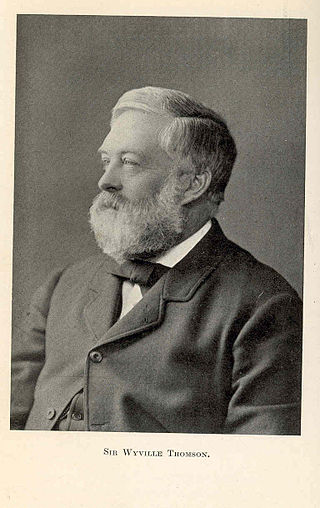
Sir Charles Wyville Thomson was a Scottish natural historian and marine zoologist. He served as the chief scientist on the Challenger expedition; his work there revolutionized oceanography and led to his knighthood.
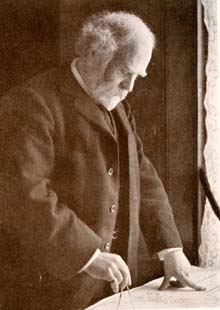
Sir John Murray was a pioneering Canadian-born British oceanographer, marine biologist and limnologist. He is considered to be the father of modern oceanography.

Thomas Thomson MD was a Scottish chemist and mineralogist whose writings contributed to the early spread of Dalton's atomic theory. His scientific accomplishments include the invention of the saccharometer and he gave silicon its current name. He served as president of the Philosophical Society of Glasgow.
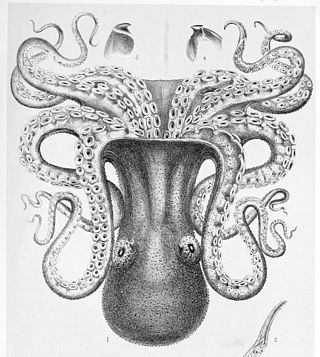
Dr William Evans Hoyle FRSE was a noted British zoologist. A specialist in deep sea creatures he worked on classification and illustrations from the Challenger Expedition from 1882 to 1888.
Sir Charles Maurice Yonge, CBE, FRS FRSE was an English marine zoologist.

Dr Robert Selbie Clark was a Scottish marine zoologist and explorer. He was the biologist on Sir Ernest Shackleton's Imperial Trans-Antarctic Expedition of 1914–1917, and served as the director of the Scottish Home Department Marine Laboratory, at Torry, Aberdeen.

Robert Graham was a Scottish physician and botanist.

William Carmichael M'Intosh LLD was a Scottish physician and marine zoologist. He served as president of the Ray Society, as vice-president of the Royal Society of Edinburgh (1927–30), and was awarded the Neill Prize (1865-8).
Hugh Robert Mill was a British geographer and meteorologist who was influential in the reform of geography teaching, and in the development of meteorology as a science. He was President of the Royal Meteorological Society for 1907/8, and President of the Geographical Association in 1932.
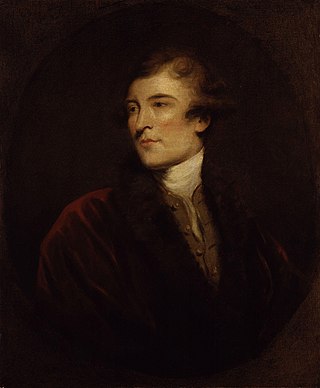
Caleb Whitefoord was a Scottish merchant, diplomat, and political satirist.
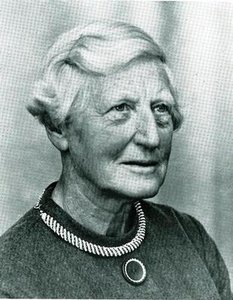
Sheina Macalister Marshall was a Scottish marine biologist who dedicated her life to the study of plant and animal plankton. She was an authority on the copepod Calanus. She worked at the Marine Biological Station at Millport, Cumbrae in Scotland from 1922-1964.
John Hyslop Steele was a British oceanographer who made major contributions to the study of marine ecosystems.

James Hartley Ashworth FRS FRSE DSc SZS was a British marine zoologist.
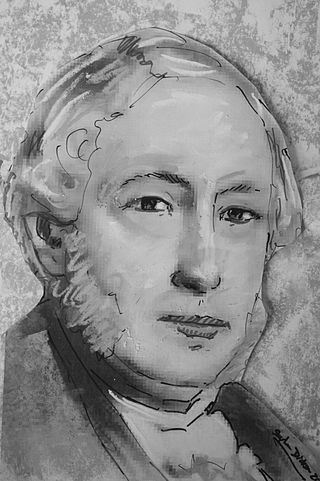
Sir William Newbigging FRSE FRCSEd FRGS was a Scottish surgeon who served as President of the Royal College of Surgeons of Edinburgh from 1814 to 1816. He was a keen amateur geographer.
Dr Joseph Pearson FRSE FLS (1881–1971) was a 20th century British-born zoologist and marine biologist associated with Ceylon and Tasmania. Pearson's Long-clawed Shrew - Solisorex pearsoni is named after him.
Dr John Barclay Tait FRSE (1900–1973) was a 20th-century British hydrographist. From 1962 to 1965 he was Deputy Director of the Marine Laboratory in Aberdeen linked to the Fishery Board for Scotland. He was an expert in the hydrography of the North Sea and of the Faroe Shetland Channel.
Dr James Mackay Shewan LLD CBiol FIFST (1909–1988) was a 20th-century Scottish chemist, bacteriologist and amateur historian. He was Head of the Torry Research Station near Aberdeen.
Dr James Stuart Thomson FRSE FLS (1868–1932) was a 19th/20th century Scottish zoologist. He was an expert on the tortoise.
References
- ↑ Biographical Index of Former Fellows of the Royal Society of Edinburgh 1783–2002 (PDF). The Royal Society of Edinburgh. July 2006. ISBN 0 902 198 84 X.